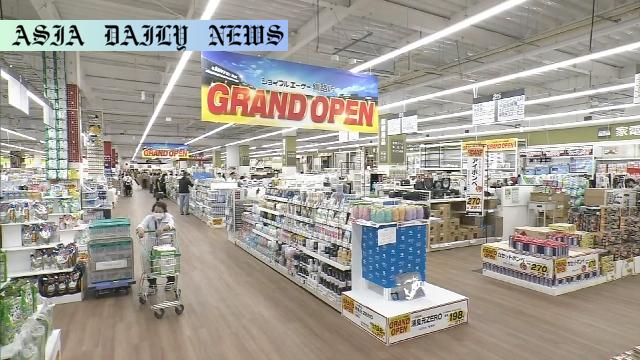Air conditioners: Fans and air conditioners sold out in Japan’s Kushiro city as record temperatures bring unprecedented demand.
- Kushiro, typically cool in summers, faced record-breaking temperatures this year.
- Demand for air conditioners and fans surged due to a heatwave crossing 30°C.
- Home improvement stores ran out of stock in under four days.
- Citizens are now coping with high heat and limited cooling equipment availability.

Unprecedented Heat in Kushiro Alters Consumer Habits
Kushiro, a city nestled in Japan’s northern Hokkaido prefecture, is known for its mild and cool summers. Typically, summer highs average around 20°C, a refreshing norm compared to the more sweltering parts of Japan. However, the summer of 2023 has brought a dramatic, and perhaps alarming, weather anomaly. For three consecutive days in late July, temperatures soared past the 30°C mark, a stark contrast to the city’s seasonal averages. This shift has sent ripples through the daily life of Kushiro residents, profoundly impacting both households and local businesses.
The sudden rise in temperatures created a sharp and immediate demand for cooling solutions, such as fans and air conditioners. A home improvement store in Kushiro experienced the effects firsthand, with its inventory of 130 fans and 70 air conditioners selling out within a mere four days after the heatwave began. This rapid depletion of stock underscores both how unprepared the city was for such heat and the urgency people felt to adapt to the unexpected conditions.
Challenges for Businesses Amid a Heat Crisis
Local businesses have struggled to keep pace with the unexpected consumer demand brought on by the heatwave. The previously mentioned home improvement store, for instance, quickly exhausted its inventory of cooling equipment, despite additional orders for fans last week. The additional units were also sold out by the following Sunday, leaving shelves empty and customers without crucial relief.
Store managers, such as Assistant Manager Koiwa Masahiro, expressed concern and empathy for the community, acknowledging that August’s temperatures might remain equally severe. Despite their efforts to restock air conditioners and related products, supply chain limitations and the short time frame make it challenging. With heating equipment now beginning to occupy retail space, the city faces an ironic juxtaposition between the current demand and upcoming seasonal preparation.
Implications of the Record Heat for Kushiro
This unprecedented summer heat reflects broader climate challenges. As Kushiro contends with record-breaking temperatures, questions arise about the city’s infrastructure and preparedness for more extreme weather in the future. Air conditioners were once considered unnecessary for Kushiro homes, yet now they are a sought-after essential. This shift also prompts reflection on energy use, sustainability, and how small cities like Kushiro can adapt to global climate trends.
Moreover, the rapid sell-out of air conditioning units highlights a larger issue of living adaptability amidst climatic shifts. The residents of Kushiro now face significant hurdles in staying cool, as retailers scramble to meet demand. These conditions emphasize the need for both immediate solutions and long-term plans to ensure comfort and safety during similar events in the years to come.



Commentary
Reflecting on the Sudden Heatwave in Kushiro
The news of air conditioners selling out in Kushiro, a city renowned for its cool summers, is startling and reflective of a much larger issue. For decades, Kushiro residents have enjoyed a mild climate, making air conditioners and fans more of a luxury than a necessity. The record heat this summer, however, has flipped this narrative on its head, highlighting an urgent need for adaptation on both personal and systemic levels.
From a socio-economic perspective, the sudden demand for cooling equipment underscores the vulnerabilities of local markets to extreme weather. Businesses like the home improvement store in Kushiro are experiencing the repercussions of a supply chain not designed for such abrupt and intense changes. This raises critical questions about market resilience and how businesses can prepare for erratic consumer demands caused by climate-related uncertainties.
Lessons from Kushiro’s Resilience
What stands out in this story is the resilience and adaptability of Kushiro’s residents. Despite the challenges of heatwaves and limited resources, the community is taking steps to weather these changes collectively. However, the broader implications—such as whether more extreme weather episodes will occur in future years—cannot be ignored. This situation serves as a microcosm of the global climate dilemma, where unexpected weather patterns demand quick thinking and systemic change.
Going forward, Kushiro’s experience could serve as a lesson for other regions unaccustomed to extreme weather. Investing in better infrastructure, diversifying product stocks, and creating backup plans for rapid shifts in demand are steps that can help mitigate the effects of similar occurrences. By preparing ahead, communities and businesses can better balance short-term needs with long-term stability.